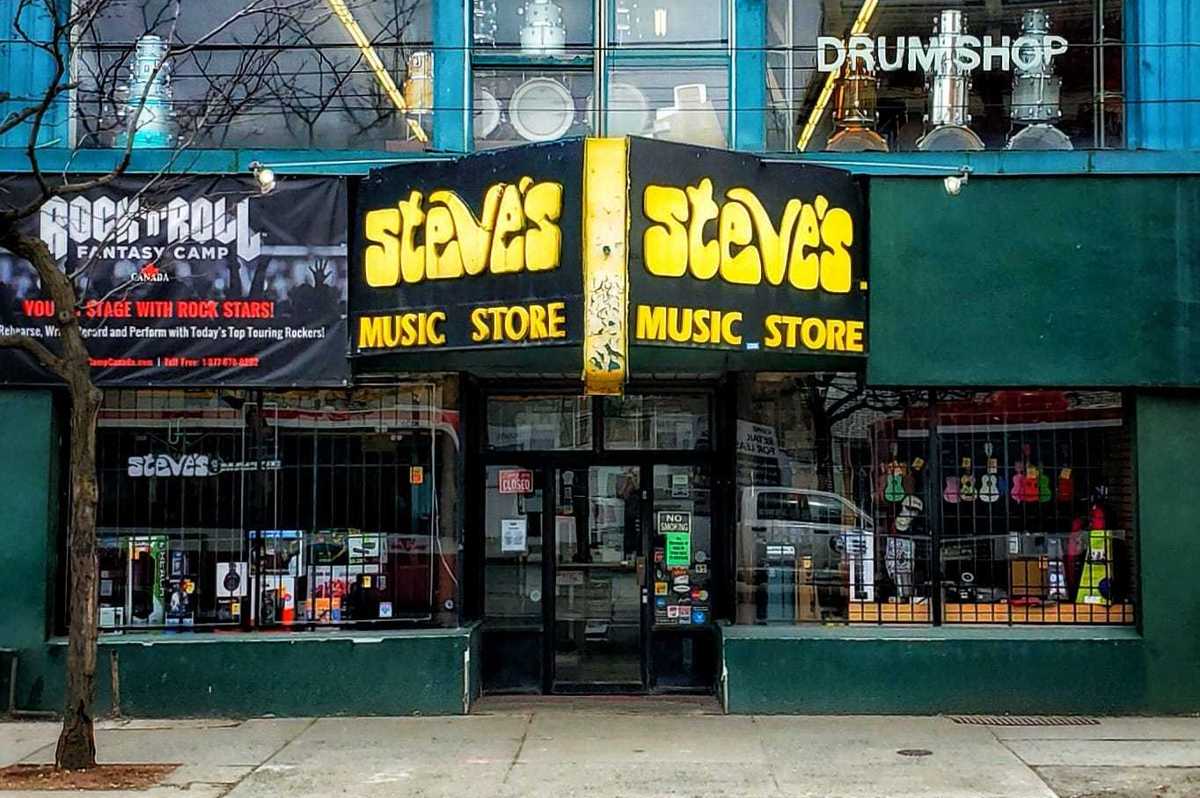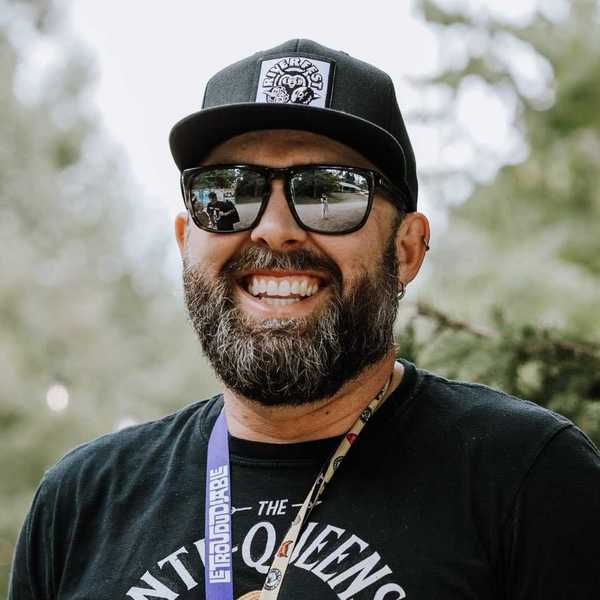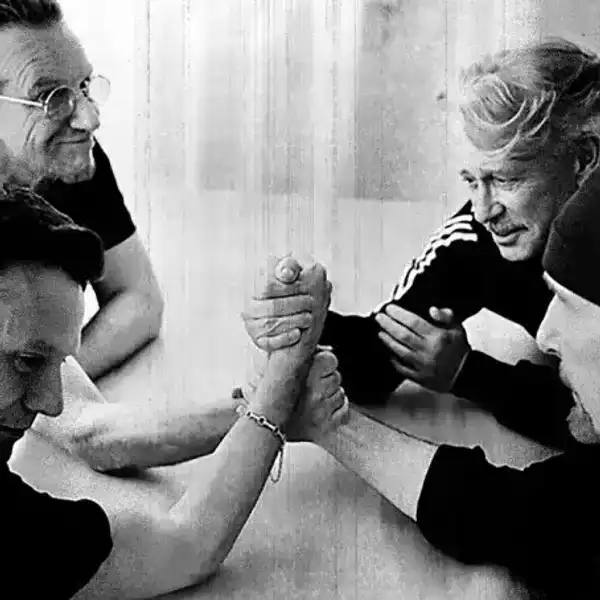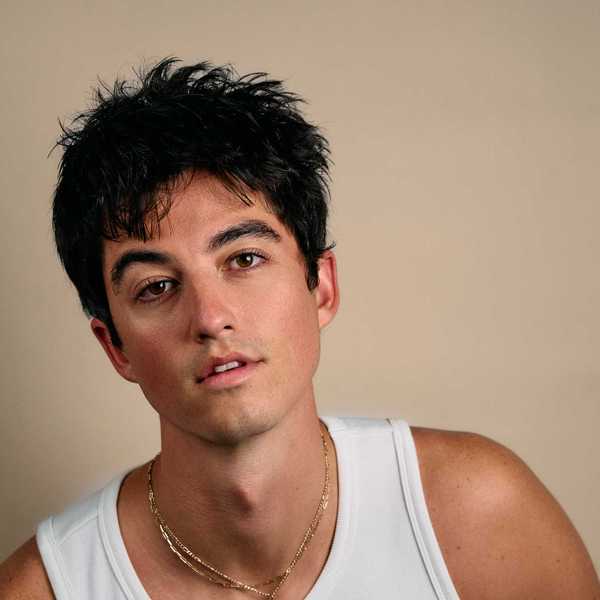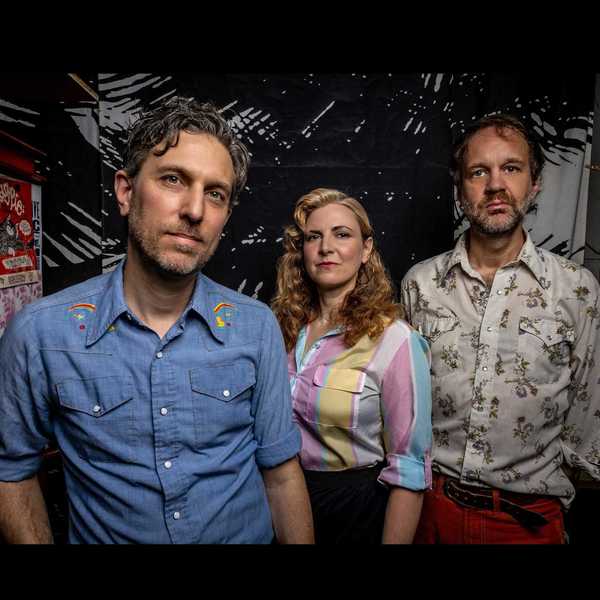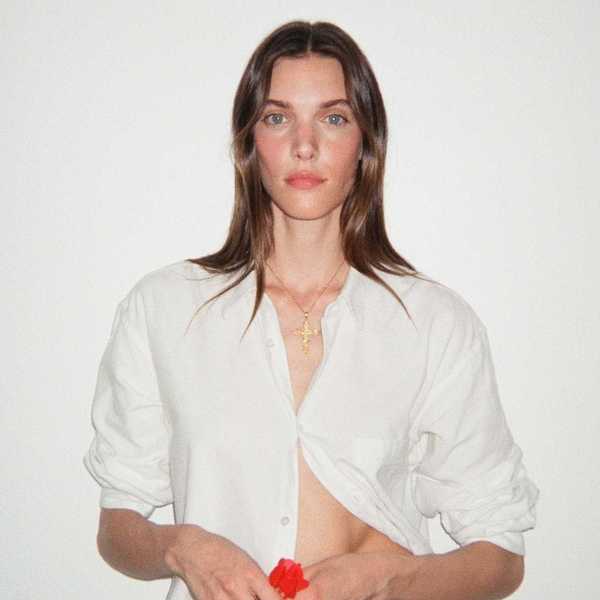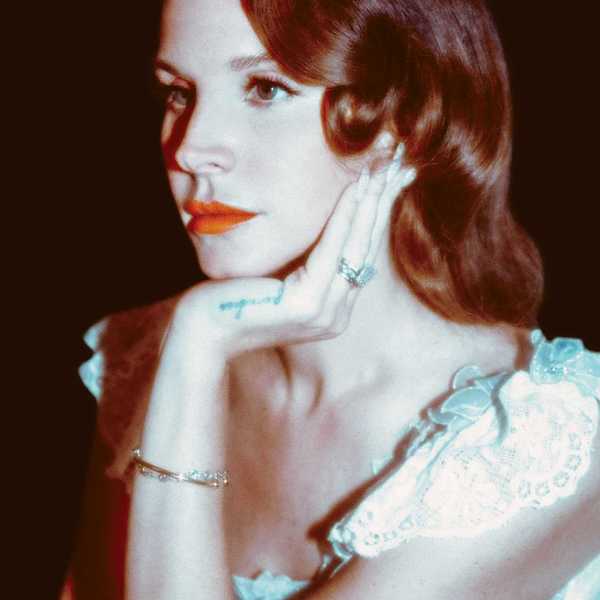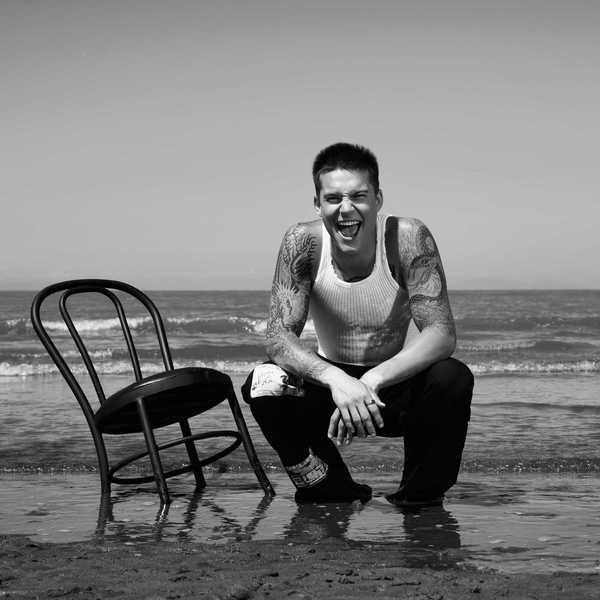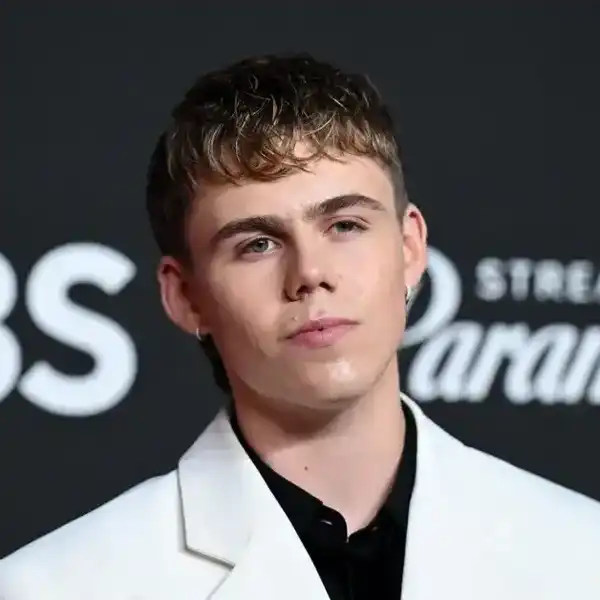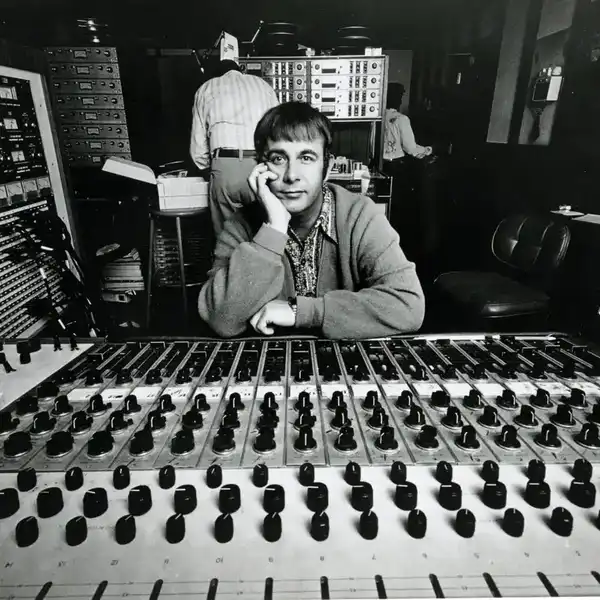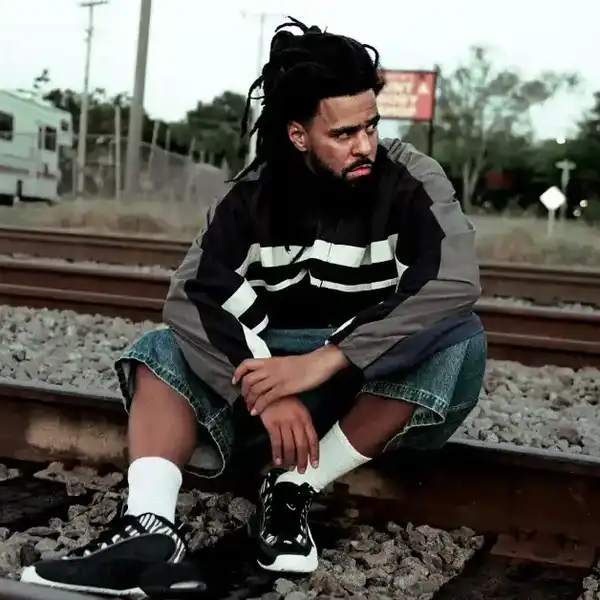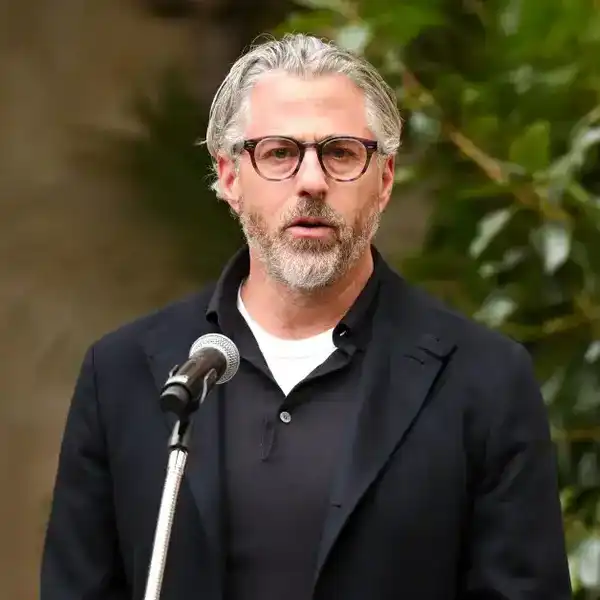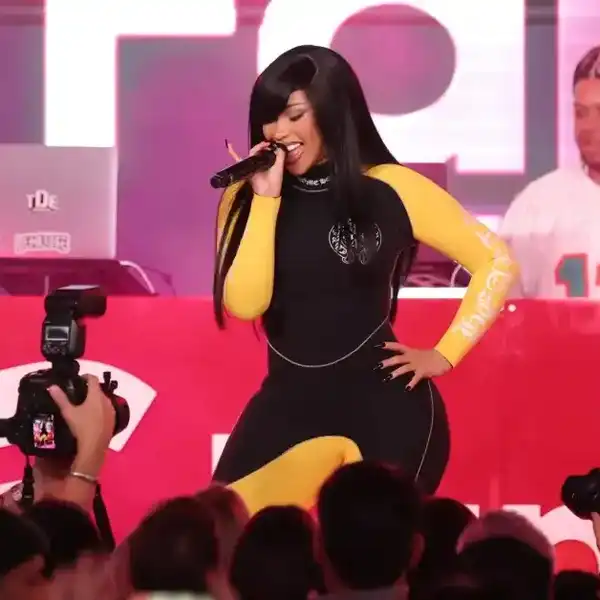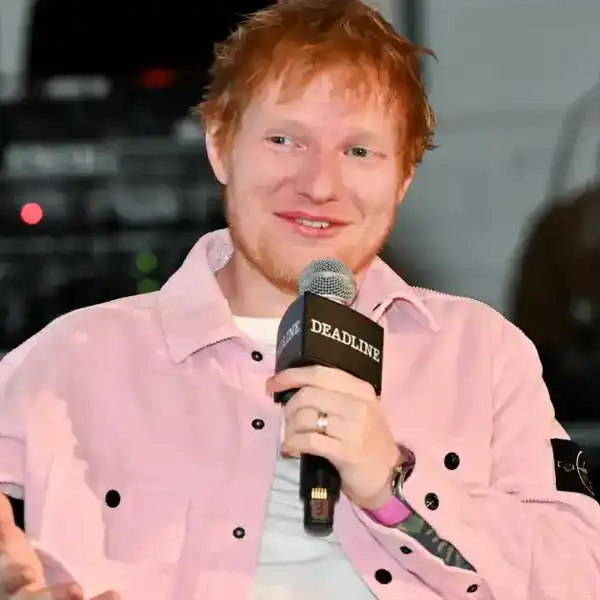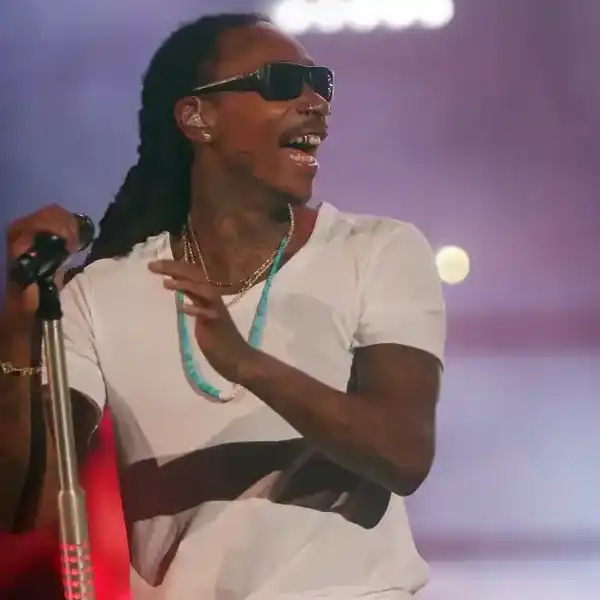A Conversation with 2024 Juno-Nominated Producer Hill Kourkoutis
Nominated for her work with Aysanabee and Tafari Anthoni, the producer, mixer, songwriter and artist has a truly multi-faceted career.
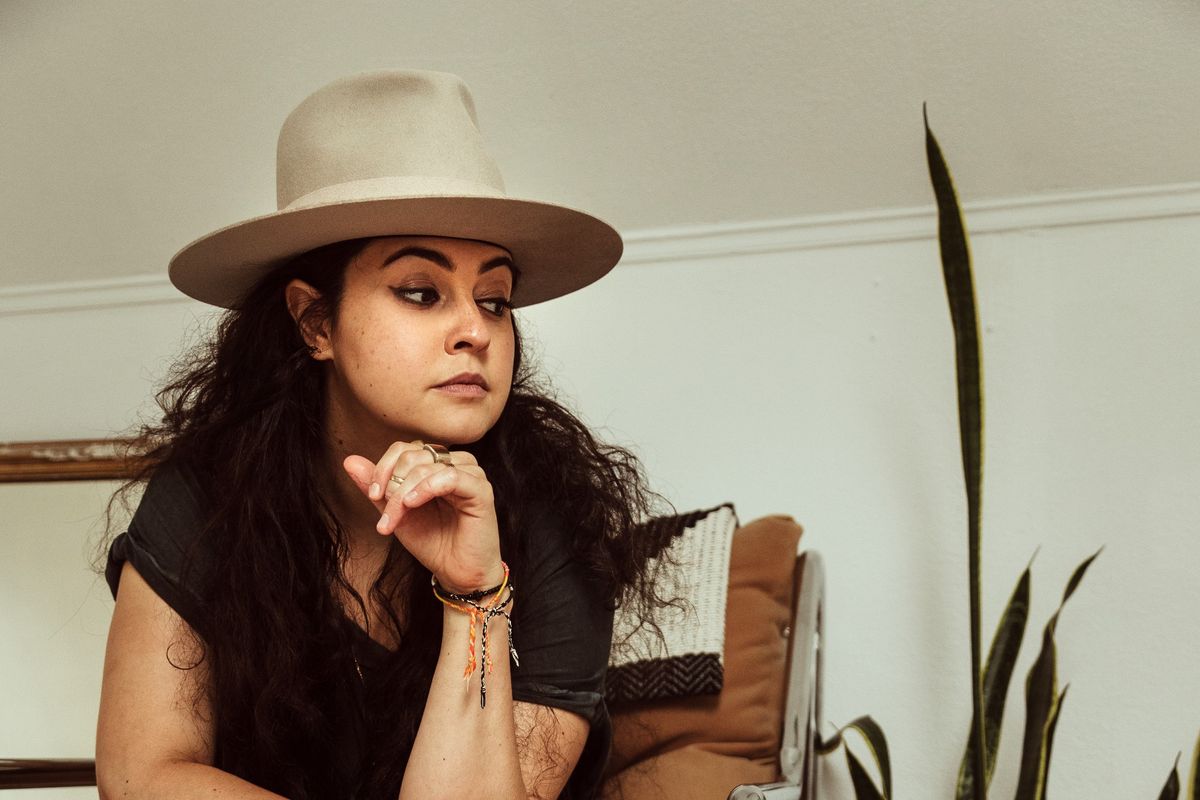
Hill Kourkoutis
Hill Kourkoutis has become a trailblazer in the music industry. Hailing from Toronto, the Juno Award-winning producer, mixer, and songwriter of Greek descent, has has left an enduring mark on the music scene, as she has lent her talents to such diverse artists as Aysanabee, Leela Gilday and Digging Roots.
As a woman who has shattered glass ceilings in the male-dominated realm of music production, Kourkoutis is a symbol of innovation and resilience. Kourkoutis made history in 2022 as the first woman to be nominated and awarded a Juno Award for Recording Engineer of the Year, and in 2024 she's nominated for the Jack Richardson Producer of the Year for her work on Aysanabee's album Watin.
Operating primarily from her studio, The Lair, Kourkoutis has produced and written for a formidable array of artists, spanning genres from alternative pop/rock to contemporary roots. From remixing tracks for July Talk and Jill Barber to composing music for shows such as Dino Ranch and Thomas & Friends: All Engines Go, she continues to push artistic boundaries.
As a seasoned session musician and live performer, Kourkoutis has shared the stage with artists like The Weekend, Serena Ryder, and Martha and The Muffins. Her collaborative solo project, Hill & The Sky Heroes, reflects her diverse musical influences and innovative approach to sound.
Billboard Canada spoke to Kourkoutis ahead of the 2024 Junos to talk about her multi-faceted career.
You worked with the late Canadian artist Tim Thorney. How did he inspire your career?
Tim had been following my career when I focused on being an artist and came in when I made the transition [to producing]. I was still touring with other artists and made a conscious decision to focus on production engineering. Tim swooped in and became an immense champion of mine and my work. He opened so many doors and got me into film and television and composing any project that seemed, for a while, to be coming in through Villa Sound. He’d be like, 'I want you to co-produce this with me.' It didn't start with Tim, but Tim undeniably sparked my transition.
Did you work in a studio with him?
I did, but I also did a lot of remote work. I went to Villa Sound a few times, and he had a great workflow with Adam Fair. They would send me stuff, their stems, and I would track and program at my studio and send them back. But Tim and I were always in touch. Most of my mornings would start with an hour-long phone call before we both dove into studio work. We would talk about projects or anything, just share stories, experiences.
You started working in the production industry when new-age technology was emerging. This technology made it fair for everyone to have access to the same tools. How was it navigating a landscape where the tools of the trade were more accessible and democratized?
When I was 13, I was in my first band, which I had started with a bunch of girls from my all-girls school. I didn’t know how to get into the industry, so I started emailing all these artists that I admired, and a couple responded with advice. One called into one of our rehearsals and offered to record our demo. It was Andrew Franey from a band called Smoother, and he brought his computer to my parent’s basement, where we had all our instruments set up for practice. He recorded our first demo, and that was a catalyst for me. Who thought you had to go into a recording studio to record music?
That was my first idea of what a bedroom production was. And then I started falling into it afterwards. So, from that point on, I was self-taught. I had downloaded an open-source DAW (digital audio workstation) called Cool Edit Pro, had a computer mic and started recording myself. It grew more sophisticated from there. Outboard gear was costly then, and now we have plugins. A different world.
After doing this for a while and making records, I love using outboard gear. There’s a beautiful quality. My studio setup is a hybrid, analog and digital vibes. I think it’s lovely that we can rely on these incredible methods of the past, but also have this accessibility, and workflow of the future.
Artists like Jacob Collier and Billie Eilish record entirely within their bedrooms.
And there’s nothing wrong with that. It’s becoming accessible to people. That was the moment for me too. I learned I love working out of studios, but I do most of the work out of my studio, which is in the basement of my house. Go where the vibe is, that’s the most important thing.
Did you enrol in classes or navigate your way independently to master these skills?
I learned a lot on my own, but any chance I got when I was in the studio, working with other producers or engineers, I would sit next to and observe everything they do. I had an education. It was informal, and I would ask questions. It was a lot of trial and error.
Google was relatively new. I started searching for resources. I would look at a ‘tape op’ magazine. There were many resources around me where I could puzzle piece my way through the process. The most exciting part for me is to observe how other people would do it because I’ve realized there are fundamental rules of sound and recording, but it’s creative in the sense that everybody does things differently. And there are no rules to this. It’s in the mind, ears, and how you see things.
Working with an artist is about building trust. How much of it is interpersonal?
The fundamental part of my process is getting to know an artist before beginning a project, that groundwork and building that trust, and getting a sense of what the artist’s likes and dislikes are, what their aesthetics are. It's essential for the process, because I work in multiple genres, it’s easy to go anywhere.
If I started with a blank canvas with every tool available, I like to narrow down the sonic palette as we go into the process. And that’s not to say we don’t experiment. Is it going to be something super present and raw, or is it going to be something a little airier and spacey? That gives me direction going into it. I could narrow down many of those choices. It’s not my job to impose what my vision. I’m there to facilitate and help grow their vision,
Collaborating with a group like Digging Roots involves capturing different phases of their evolution. How did you manage to encapsulate their current spirit?
ShoShona and Raven are two of my dearest friends. We had a lot of trust and friendship going into that project, which I think was necessary. They hadn’t recorded an album in some time, so they knew this was going to be different. During that time, there had been a significant amount of evolution. They had some ideas of what they wanted out of the new album sonically, but there were also a ton of songs they were pulling from.
What made the initial steps of that process truly special was the opportunity they presented me to explore a diverse range of songs and fully unleash my creativity. We started that record pre-pandemic, then were working on it throughout the pandemic. There was a lot of back and forth and exploration with that. And you don’t always get that luxury on an album, to explore all facets of it. It’s not like we had a deadline that we’re working towards, it wasn’t necessarily as intense as some other projects. That was a gift for sure.
Recognition is coming your way for your collaboration with Aysanabee. It's evident that you must have poured your heart and soul into this endeavour.
I feel I pour my heart into every album or single I work, because there is still an artist in me. It’s as much my project in terms of what I invest in it and how much it means to me. Watin was an extraordinary and important album because it told the story of Aysanabee’s grandfather, who was a residential school survivor. We wanted to do the project justice, and we wanted to tell his grandfather’s story and honour him. There was extra care in that for sure.
You’re nominated for a Juno award for the Jack Richardson Producer of the Year for the album. How does it feel to get that recognition?
I'm nominated for Tafari Anthony’s song "Whiskey Bar" as well. I feel so grateful to be part of these significant projects, where these artists are putting everything out there and being sincere. It’s an honour to be invited into that space and help facilitate that. We don’t do these things for the accolades. But when these things come, it means a lot that people resonate with the work we’re creating. What we’re trying to do by putting this out there is connect with people and discover truths or link emotionally to them. That always means a lot to me.
Balancing roles as an engineer, producer, artist, songwriter, composer and cultural supporter, do you have to carefully allocate time for each aspect?
I think they’re connected, because to me, this comes down to human experience. As much as this is my job, it is my life. I’m thinking about the human aspect of any project I do. I want to gain something out of this experience. I want to learn something. All these things feed each other and help tell stories and document those stories. It’s all symbiotic to me.
When you have multiple projects on the go at the same time, how do you schedule them?
I just say yes, and somehow the timelines work out. There's the odd situation when I have to turn something down just because someone wanted something yesterday, and it’s not physically possible. Several singles will be released soon. I’ve been working with an artist named Sebastian Gaskin, who I’m eager about. For another artist named Carlin, Damhnait Doyle, and I have been writing her new songs, which I’m excited about. I’m also on the tail end of finishing my next record. It’s just a lot happening.

